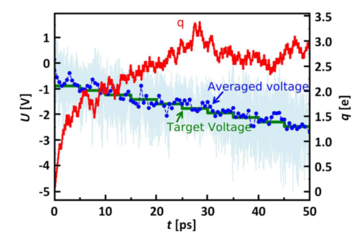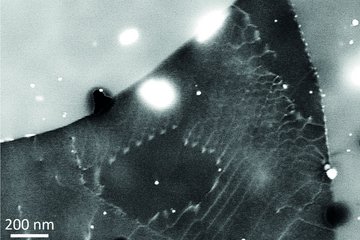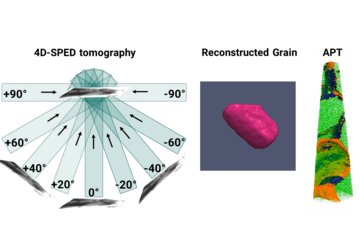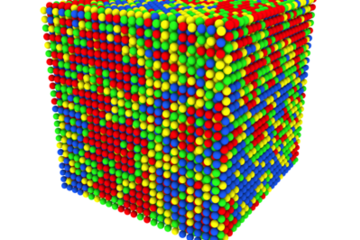All genres
741.
Talk
In-situ stress measurements in thin films using synchrotron diffraction. Summer School: Theory and Practice of Modern Powder Diffraction, Tagungshaus Schönenberg, Ellwangen, Ellwangen, Germany (2014)
742.
Talk
Nanotribology: Wear Mechanisms in Austenite. Materials Science and Engineering-MSE 2014, Darmstadt, Germany (2014)
743.
Talk
In situ micromechanics: An overview on synchrotron based µLaue experiments. XTOP 2014, Villard de Lans, France (2014)
744.
Talk
Mechanical behavior of nanolayered thin films: Interface control. 3rd General Meeting of the GDRi CNRS "Mechanics of Nano-objects", Empa, Thun, Switzerland (2014)
745.
Talk
Design and development of fracture property measurement techniques at the small scale. ICAMS (RUB), Bochum, Germany (2014)
746.
Talk
In-situ stress measurements in Cu films using synchrotron radiation. "Mechanical Issues for Flexible Electronics" Flex Workshop, Erich Schmid Institut, Leoben, Leoben, Austria (2014)
747.
Talk
From idealized bi-crystals towards applied polycrystals: Plastic deformation in small dimensions. Schöntal Symposium - Dislocation-based Plasticity, Kloster Schöntal, Germany (2014)
748.
Talk
From idealized bi-crystals towards applied polycrystals: Plastic deformation in small dimensions. TMS2014, 143rd Annual Meeting & Exhibition, San Diego, CA, USA (2014)
749.
Talk
Clamped beam geometry for fracture toughness testing of (Pt,Ni)Al bond coats at the micron-scale. AK- Rasterkraftmikroskopie und Nanomechanische Methoden, Düsseldorf, Germany (2014)
750.
Talk
Effects of the film thickness on the deformation behavior of thin Cu films on polyimide. Arbeitskreistreffen Rasterkraftmikroskopie und nanomechanische Methoden, Max-Planck-Institut für Eisenforschung GmbH, Düsseldorf, Germany (2014)
751.
Talk
Film thickness effects on the deformation behavior of Cu/Cr thin films on polyimide. TMS 2014: 143rd Annual Meeting & Exhibition, San Diego, CA, USA (2014)
752.
Talk
Shedding light on the role of interfaces for strengthening materials by using micromechanical testing. 60. Metallkunde-Jubiläumskolloquium, Lech am Arlberg, Germany (2014)
753.
Talk
Plasticity of supersaturated Cu–Cr alloys and Cu–Cr multilayers. MACAN Meeting, Düsseldorf, Germany (2014)
754.
Talk
Cu–Cr nanocomposites and multilayers. Gordon Research Conference: Thin Film & Small Scale Mechanical Behavior, Bentley University, Boston, MA, USA (2014)
755.
Talk
In situ Transmission Electron Microscopy. GRK 1896 Summer School on In situ Microscopy, Hirschegg, Austria (2014)
756.
Talk
Localized mechanical study of individual interfaces in miniaturized Cu structures. MS&T14 - Materials Science & Technology 2014, Pittsburgh, PA, USA (2014)
757.
Talk
Synchrotron X-ray diffraction study of cold-drawn pearlitic steel. Pearlite Workshop, MPI für Eisenforschung GmbH, Düsseldorf, Germany (2014)
758.
Talk
In Situ Electron Microscopy and Micro-Laue Study of Plasticity in Miniaturized Cu Bicrystals. CAMTEC III, Symposium on Fine-Scale Mechanical Characterisation and Behaviour , Cambridge, UK (2014)
759.
Talk
µLaue: A novel view on fatigue damage at the micron scale. MRS Fall Meeting, Boston, MA, USA (2014)
760.
Talk
Plastic deformation of bi-crystalline micro pillars analyzed by in situ µLaue diffraction. TMS2014, Annual Meeting & Exhibition, San Diego, CA, USA (2014)











